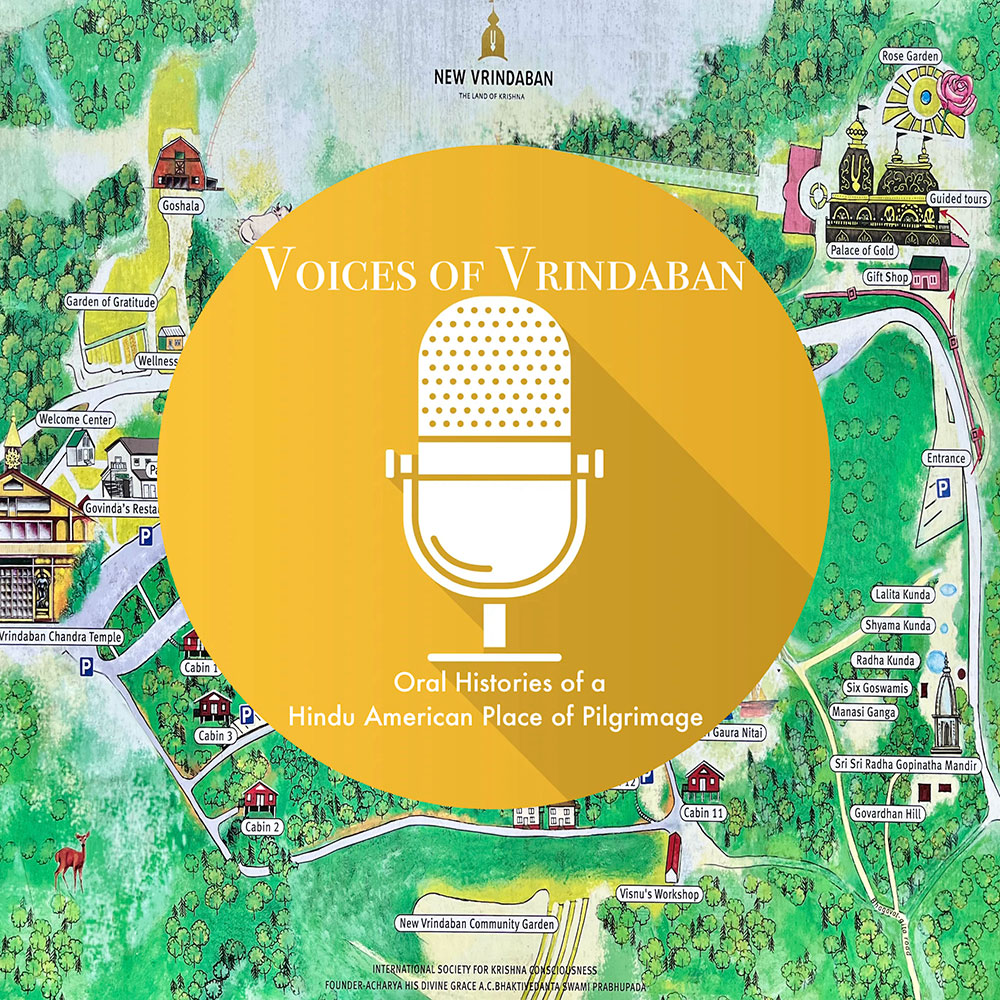
Voices of Vrindaban: Oral Histories of a Hindu American Place of Pilgrimage
Vineet Chander
EdD, Assistant Dean, Hindu Life
Princeton University
This project focuses on a place of pilgrimage in the United States—an intentional spiritual community, nestled in the Appalachian foothills of West Virginia, that is rooted in Hinduism’s Vaishnava tradition, and has also become a major tourist attraction for the Hindu diaspora in America. Since its founding more than fifty years ago, New Vrindaban has served as the flagship rural outpost for the International Society for Krishna Consciousness (ISKCON), known more colloquially as the Hare Krishna movement. As one of the first constructed diasporic Hindu sacred spaces in the United States, inspired and founded by an elderly Indian immigrant who was among a handful of Hindu and Buddhist teachers who brought Eastern wisdom traditions and practices to the west in the 1960s and 1970s, this community offers a fascinating and compelling context within which to interrogate the complex (and sometimes challenging) interweaving of faith, race, culture, ethnicity, and identity that marks the history of Asian Pacific American religions in America. While the community’s pioneering devotees were almost all non-Indian converts to the faith, today Hindu diasporic pilgrim families form the bulk of visitors to the community—now increasingly joined by yoga practitioners and teachers, meditators, and spiritual seekers from a variety of cultural, ethnic, and racial backgrounds. The project intentionally uses oral history as a method to uplift the voices of Hindu Americans—as well as “American Hindus”—in telling the multivalent stories that, together, illustrate the birth and evolution of this pilgrimage site.
Keywords: Diaspora, Hinduism, Oral History, Pilgrimage site, Vaishnavism
